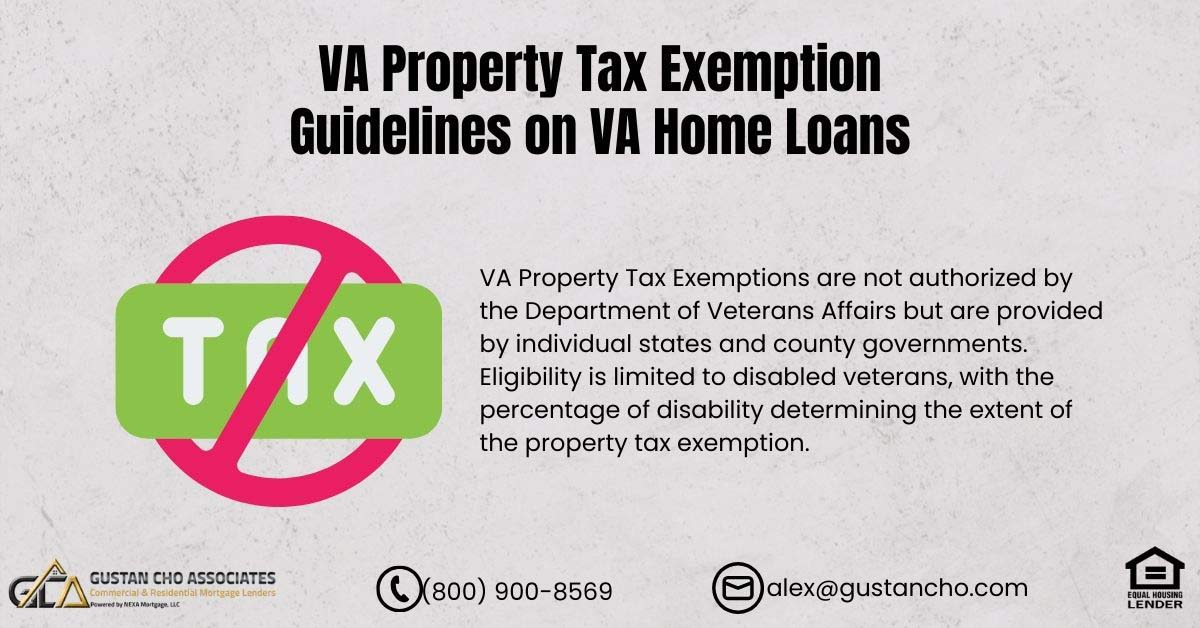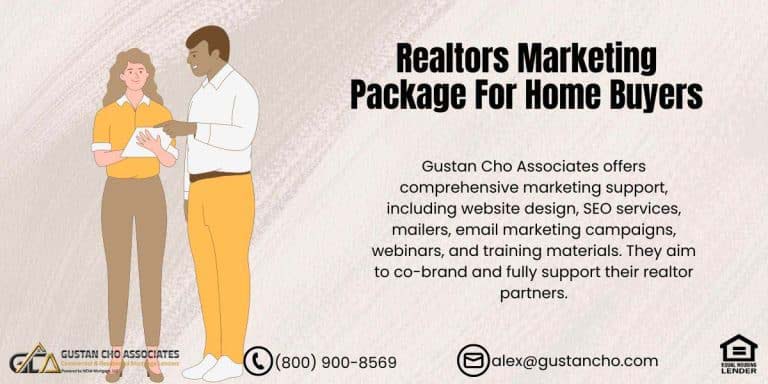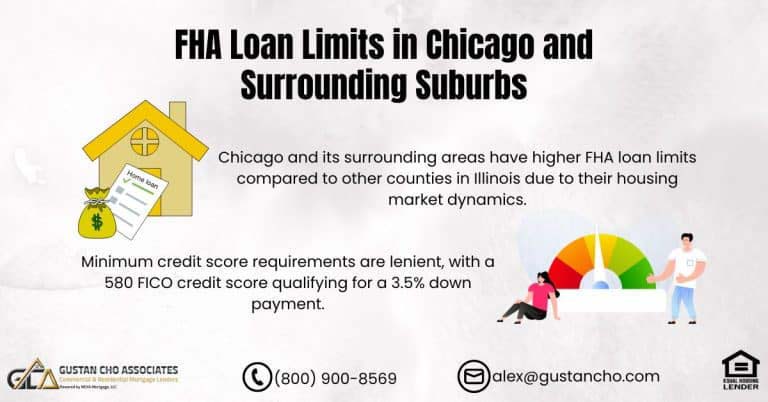This article will discuss the guidelines for VA property tax exemption related to VA home loans. The VA has created VA Home Loans for eligible active and retired members of the US Armed Services. Military personnel must have a valid Certificate of Eligibility (COE) to qualify for a VA loan.
As a token of appreciation for their service to the nation, the VA provides eligible members with VA Home Loans. Subsequent sections of this blog will explore what a VA loan is and the guidelines for a VA property tax exemption when obtaining a VA home loan.
What Is a VA Loan and Who Qualifies?
The VA Loan program is optimal for home buyers looking to occupy their primary residence. Numerous advantages accompany VA loans, with the primary benefit being the ability for homebuyers to acquire a residence with a zero down payment and without encountering a maximum loan limit. The VA implements lenient guidelines regarding credit, debt-to-income ratio, and credit scores.
A noteworthy benefit is that disabled veterans may qualify for VA Property Tax Exemption in several states. The eligibility for VA Property Tax Exemption is contingent upon the veteran’s degree of disability and varies based on the regulations of each specific state.
See If You Qualify for a VA Property Tax Exemption
Disabled veteran or surviving spouse? You may be leaving serious money on the table
Who Can Get VA Property Tax Exemption On VA Loans
The Department of Veterans Affairs does not authorize VA Property Tax Exemptions. Instead, individual states and/or county governments provide VA Property Tax Exemptions, each with guidelines for United States Armed Services veterans. Eligibility for these exemptions is limited to disabled veterans. Veterans who are 100% disabled may qualify for a 100% Property Tax Exemption in most states, but it is not automatically granted. The percentage of disability determines the extent of the property tax exemption for disabled veterans.
VA Loan Benefits For Disabled Veterans
The degree of disability among disabled veterans is not standardized nationwide, as eligibility requirements are determined by individual counties within each state. After their home purchases are closed, veterans must submit an application for the VA Property Tax Exemption.
This exemption is designed for homeowners with a service-related disability, offering financial relief in property tax obligations. Even for veterans with less than 100% disability, there is the option to apply for a partial Property Tax Exemption, providing a valuable benefit to those who have served.
It is crucial for veterans to be aware of the county-specific eligibility criteria and to promptly apply for the VA Property Tax Exemption after closing on their homes. This process ensures that disabled veterans receive the appropriate financial relief they are entitled to, acknowledging their service-related disabilities.
Whether seeking full or partial exemption, veterans can navigate the program’s intricacies to ease the burden of property taxes associated with homeownership.
Property Tax Exemption Saves Homeowners From Paying Property Taxes
All disabled veterans are encouraged to apply for Property Tax Exemption. Even veterans who are only partially disabled may qualify for a partial exemption. It depends on the individual county on who qualifies on VA exemption on property taxes.
The amount of savings is dependent on the following:
- Percent disabled rating by the Department of Veterans Affairs
- The county and state the property is located
- Type of property
- Other factors required by the individual county and state the property is located
The veteran homeowner may need to register and re-apply for the exemption annually or every few years. This is dependent on the state.
What Benefits Do You Get With a VA Loan?
Gustan Cho Associates are lenders of VA loans with zero overlays. There are many benefits of using a VA loan for a home purchase. Here is the list of the countless benefits offered by the VA:
- Zero down payment with 100% financing
- No closing costs with the use of sellers concessions and/or lender credit
- No monthly mortgage insurance required
- The VA Funding Fee can be rolled into the loan
- VA Loans have the lowest mortgage rates out of all other loan programs due to the VA guarantee
- Homeowners with a current VA Loan can refinance their loan into another new VA Loan with a lower rate with no closing costs
- This streamline VA refinance loan program is called an IRRRL
- The VA permits a 100% LTV cash-out refinances
- There is a two-year waiting period after bankruptcy, foreclosure, deed in lieu of foreclosure, short-sale on VA Loans
- Borrowers can qualify for VA Loans during the Chapter 13 Bankruptcy repayment plan with Trustee Approval
- Chapter 13 Bankruptcy does not have to be discharged
- There is no waiting period after the Chapter 13 Bankruptcy discharged date
Outstanding collections and charged-off accounts do not have to be paid off to qualify for VA Home Loans.
How Does VA Property Tax Exemption Work

Homeowners need to qualify for a Property Tax Exemption on VA loans after they have closed on their home loans. A 100% disabled homeowner who is a veteran of the U.S. Armed Services is likely to get a 100% property tax exemption. However, this exemption does not kick in until the homeowner is living in the house and has applied for the exemption. It normally takes 6 or more months for a property tax exemption to kick in after the application. All Property Tax Exemption on VA mortgages is state-specific.
California VA Property Tax Exemption Guidelines on VA Loans
For California, here are the guidelines and the rules:
California Property Tax Exemptions. For honorably discharged veterans, spouse or pensioned-parents of the deceased: $4,000 real property or personal property exemption by the California Constitution. Disabled Veterans exemption. Depending on income, there is a basic $100,000 or $150,000 exemption available. There are limitations when applying in California for these exemptions.
Lower Your Monthly Payment With VA Tax Exemptions
A VA property tax exemption can cut your payment and boost your buying power
Colorado Property Tax Guidelines on VA Loans
Below are the Colorado property tax guidelines on VA home loans:
For disabled Veterans who qualify. 50% of the first $200,000 in actual value for a primary residence. The procedure in Colorado requires disabled veterans to submit an application to the Division of Veterans Affairs. This should be done between January 1st and July 1st of the qualifying year.
Florida VA Property Tax Exemption Rules
Many counties throughout the state of Florida offer VA property tax exemption. Many active and retired veterans of the U.S. Military call Florida home. Mike Richardson does a high volume of VA loans in Florida. Mike said the following:
In Florida, the exemption depends on certain requirements. An ex-service member who is honorably discharged who is disabled 10% is eligible to a $5,000 reduction in the assessed value of the property. A permanently disabled Veteran is eligible for a total exemption from taxes. Other requirements allow Veterans to get a discount on their taxes. To see if you are eligible, you should go to Florida’s Department of Revenue’s website.
Georgia VA Property Tax Rules And Guidelines
Below are the Georgia VA property tax rules and guidelines on VA loans:
Disabled Veterans or surviving spouse are eligible for an exemption in Georgia of $60,000 plus from paying property taxes. The exemption depends on an index rate set by the United States Secretary of Veteran’s Affairs.
Illinois Tax Exemption Guidelines on VA Loans
Below are the Illinois tax exemption guidelines on VA loans:
For returning Veterans, there is a $5,000 reduction to returning Veterans equalized assessed value. Returning veterans from active duty in an armed conflict involving the U.S. armed forces can apply upon their return. To apply for Returning Veterans’ Homestead exemption in Illinois, a Veteran would have to contact or visit a local County Assessor’s office. Standard Homestead Exemption for Disabled Veterans:
For a disabled veteran, the Standard Homestead Exemption applies a reduction in the property’s EAV to qualified Veterans with service-related disabilities. Beginning in 2015 tax year: For a veteran with a service-related disability of at least 30%, a $2,500 homestead exemption is available. A VA property tax exemption (homestead exemption) is available of $5,000 to Veterans with a service-related disability of at least 50%. V
Veterans who have a service-connected disability of at least 70% are exempt from paying property taxes. This is also available to surviving spouses under circumstances. Veterans must be approved for this exemption and file annual applications by their counties deadline. In order to apply in Illinois, a Veteran would have to contact or visit a local County Assessor’s office.
Get the Full Benefit You Earned as a Veteran
You served your country—make sure you’re using all the benefits you’ve earned, including possible property tax relief
Texas VA Tax Exemption Rules And Guidelines
Below are the VA tax exemption rules and guidelines for the state of Texas:
The exemption depends on the disability rating. The amount is as follows: $5,000 from the property value if 10% to 29% disabled. $7,500 from the property value if 30% to 49% disabled. $10,000 from the property value if 50% to 69% disabled. $12,000 from the property value if 70% to 100% disabled. You can apply for a tax exemption in Texas by going to the TexVet website.
Virginia VA Property Tax Exemption Guidelines
Virginia’s real estate tax exemption allows 100% service-connected, permanent and totally disabled veterans or surviving spouse to be granted exemption from taxes when the application is approved.
Washington VA Property Tax Exemption Guidelines For Disabled Veterans
Below are the Washington VA property tax exemption guidelines for disabled veterans:
In order to get property tax relief in Washington, you should contact your County Assessor to determine how much you can save. Applicants with service-connected disability rating may qualify for relief on their property tax bill for primary residences.
Property Tax Exemption in the Other States on VA Loans
Below is a statement about property tax exemption in other states on VA loans:
You can find if your state has opportunities to save money on taxes by going to the state or county website. Often these are listed on the state’s Department of Revenue site.
For more information about the content of this article and/or other mortgage-related topics, please contact us at Gustan Cho Associates at 800-900-8569 or text us for a faster response. Or email us at alex@gustancho.com . Gustan Cho Associates Mortgage Group is available 7 days a week, on evenings, weekends, and holidays.
FAQ: VA Property Tax Exemption Guidelines on VA Home Loans
- 1. Who qualifies for a VA Loan, and what are its primary advantages? The VA Loan program is designed for homebuyers looking to occupy their primary residence. Eligibility requires a valid Certificate of Eligibility (COE), and the primary advantages include zero down payment, no maximum loan limit, lenient guidelines on credit, debt-to-income ratio, and credit scores.
- 2. Who provides VA Property Tax Exemptions, and who is eligible? VA Property Tax Exemptions are not authorized by the Department of Veterans Affairs but are provided by individual states and county governments. Eligibility is limited to disabled veterans, with the percentage of disability determining the extent of the property tax exemption.
- 3. How does the VA Property Tax Exemption work for disabled veterans? Disabled veterans must apply for the Property Tax Exemption after closing on their homes. The exemption is state-specific, with 100% disabled veterans likely qualifying for a 100% property tax exemption. The application process may take around 6 months to take effect.
- 4. What are the benefits of a VA Loan for disabled veterans? Disabled veterans can benefit from a VA Loan by enjoying a zero down payment, no closing costs, no monthly mortgage insurance, and the ability to refinance with a lower rate. The VA Loan program is accommodating to veterans with a service-related disability.
- 5. How can veterans save on property taxes through the VA Property Tax Exemption? Disabled veterans, even those partially disabled, are encouraged to apply for Property Tax Exemption. The amount of savings depends on the disability rating, the property’s location, type, and other factors specified by individual states and counties.
- 6. What are the VA Property Tax Exemption guidelines in specific states? The guidelines vary by state. For example, California offers exemptions based on property and income, Colorado provides a percentage reduction for disabled veterans, and Florida has specific rules for honorably discharged veterans. Similar guidelines exist for Georgia, Illinois, Texas, Virginia, and Washington.
- 7. How can veterans apply for VA Tax Exemption in Texas? In Texas, veterans can apply for tax exemption based on their disability rating, ranging from $5,000 to $12,000 from the property value. The application process can be initiated through the TexVet website.
- 8. How does Virginia’s real estate tax exemption work for disabled veterans? Virginia’s real estate tax exemption grants 100% service-connected, permanently and totally disabled veterans, or surviving spouses, an exemption from taxes upon approval of their application.
- 9. Where can veterans find information on Property Tax Exemption in other states? Veterans can inquire with their County Assessors or relevant state authorities to determine the specific guidelines and relief options available for Property Tax Exemption in their respective states.
This blog about the VA Property Tax Exemption Guidelines on VA Home Loans was updated on February 27, 2024.
Combine VA Home Loan Perks With Property Tax Savings
Zero down, no monthly mortgage insurance, and potential property tax exemptions can be a powerful combo











Will this group help a widow of armed forces under a VA loan